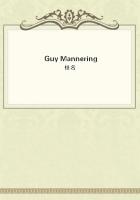The mediaeval conception of the Devil is a grotesque compound of elements derived from all the systems of pagan mythology which Christianity superseded. He is primarily a rebellious angel, expelled from heaven along with his followers, like the giants who attempted to scale Olympos, and like the impious Efreets of Arabian legend who revolted against the beneficent rule of Solomon. As the serpent prince of the outer darkness, he retains the old characteristics of Vritra, Ahi, Typhon, and Echidna. As the black dog which appears behind the stove in Dr. Faust's study, he is the classic hell-hound Kerberos, the Vedic Carvara. From the sylvan deity Pan he gets his goat-like body, his horns and cloven hoofs. Like the wind-god Orpheus, to whose music the trees bent their heads to listen, he is an unrivalled player on the bagpipes. Like those other wind-gods the psychopomp Hermes and the wild huntsman Odin, he is the prince of the powers of the air: his flight through the midnight sky, attended by his troop of witches mounted on their brooms, which sometimes break the boughs and sweep the leaves from the trees, is the same as the furious chase of the Erlking Odin or the Burckar Vittikab. He is Dionysos, who causes red wine to flow from the dry wood, alike on the deck of the Tyrrhenian pirate-ship and in Auerbach's cellar at Leipzig. He is Wayland, the smith, a skilful worker in metals and a wonderful architect, like the classic fire-god Hephaistos or Vulcan; and, like Hephaistos, he is lame from the effects of his fall from heaven. From the lightning-god Thor he obtains his red beard, his pitchfork, and his power over thunderbolts; and, like that ancient deity, he is in the habit of beating his wife behind the door when the rain falls during sunshine. Finally, he takes a hint from Poseidon and from the swan-maidens, and appears as a water-imp or Nixy (whence probably his name of Old Nick), and as the Davy (deva)whose "locker" is situated at the bottom of the sea.[117]
[117] For further particulars see Cox, Mythology of the Aryan Nations, Vol. II. pp 358, 366; to which I am indebted for several of the details here given. Compare Welcker, Griechische Gotterlehre, I. 661, seq.
According to the Scotch divines of the seventeenth century, the Devil is a learned scholar and profound thinker. Having profited by six thousand years of intense study and meditation, he has all science, philosophy, and theology at his tongue's end; and, as his skill has increased with age, he is far more than a match for mortals in cunning.[118] Such, however, is not the view taken by mediaeval mythology, which usually represents his stupidity as equalling his malignity.
The victory of Hercules over Cacus is repeated in a hundred mediaeval legends in which the Devil is overreached and made a laughing-stock. The germ of this notion may be found in the blinding of Polyphemos by Odysseus, which is itself a victory of the sun-hero over the night-demon, and which curiously reappears in a Middle-Age story narrated by Mr. Cox. "The Devil asks a man who is moulding buttons what he may be doing;and when the man answers that he is moulding eyes, asks him further whether he can give him a pair of new eyes. He is told to come again another day; and when he makes his appearance accordingly, the man tells him that the operation cannot be performed rightly unless he is first tightly bound with his back fastened to a bench. While he is thus pinioned he asks the man's name. The reply is Issi (`himself'). When the lead is melted, the Devil opens his eyes wide to receive the deadly stream. As soon as he is blinded, he starts up in agony, bearing away the bench to which he had been bound; and when some workpeople in the fields ask him who had thus treated him, his answer is, 'Issi teggi' (`Self did it'). With a laugh they bid him lie on the bed which he has made: 'selbst gethan, selbst habe.' The Devil died of his new eyes, and was never seen again."[118] "Many amusing passages from Scotch theologians are cited in Buckle's History of Civilization, Vol. II. p. 368. The same belief is implied in the quaint monkish tale of "Celestinus and the Miller's Horse." See Tales from the Gesta Romanorum, p. 134.
In his attempts to obtain human souls the Devil is frequently foiled by the superior cunning of mortals. Once, he agreed to build a house for a peasant in exchange for the peasant's soul; but if the house were not finished before cockcrow, the contract was to be null and void. Just as the Devil was putting on the last tile the man imitated a cockcrow and waked up all the roosters in the neighbourhood, so that the fiend had his labour for his pains. A merchant of Louvain once sold himself to the Devil, who heaped upon him all manner of riches for seven years, and then came to get him. The merchant "took the Devil in a friendly manner by the hand and, as it was just evening, said, 'Wife, bring a light quickly for the gentleman.' 'That is not at all necessary,' said the Devil;'I am merely come to fetch you.' 'Yes, yes, that I know very well,' said the merchant, 'only just grant me the time till this little candle-end is burnt out, as I have a few letters to sign and to put on my coat.' 'Very well,' said the Devil, 'but only till the candle is burnt out.' 'Good,' said the merchant, and going into the next room, ordered the maid-servant to place a large cask full of water close to a very deep pit that was dug in the garden. The men-servants also carried, each of them, a cask to the spot; and when all was done, they were ordered each to take a shovel, and stand round the pit. The merchant then returned to the Devil, who seeing that not more than about an inch of candle remained, said, laughing, 'Now get yourself ready, it will soon be burnt out.' 'That I see, and am content; but I shall hold you to your word, and stay till it IS burnt.' 'Of course,' answered the Devil; 'I stick to my word.' 'It is dark in the next room,' continued the merchant, 'but I must find the great book with clasps, so let me just take the light for one moment.'















